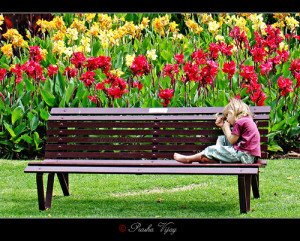Classical Homeopathy for Autism
Homeopathy has been used with success to alleviate mental and physical symptoms of autism, and to significantly support individuals with autism. Many parents have reported remarkable improvement in their autistic children after the children received homeopathic care. In classical Homeopathy, remedy selection involves addressing the person in totality by looking at the following:
– Behaviours
– Physical Symptoms
– Emotional Symptoms
– Genetic weaknesses (also identified as miasms or constitutions)
– Environmental factors such as vaccinations, drugs or other environmental toxins.
If the remedy is correctly selected on the totality of symptoms, then improvement may be seen in all areas. Homeopaths try to determine the individual’s susceptibility, i.e. individual weaknesses in the vital force, to both cure and prevent a re-occurrence of symptoms. The first stage of the progress is to take a full case and give the remedy that most closely matches the individual’s expression of their disease.
What is Different about Homeopathic Treatment?
Without empathy one cannot systematically reach the amazing results sometimes seen after homeopathic treatment.
At its best classical homeopathy is the judicious use of this level of humanity.
Mainstream science still stands helpless in front of this problem of autism and ASD. There are many tools but not much success.
In homeopathy this phenomenon is approached in a completely different way.
“Like cures like is the principle of love. You observe and you acknowledge what is there.”
Homeopathy allows the use of empathy in a skillful manner to find the remedy. This is done by using the principle of like cures like, the principle of cure which governs homeopathic prescribing. The first step is not to fix a problem, the first step is to acknowledge the uniqueness and individuality of a patient.
What is looked at in homeopathy is the ailment itself, how we experience it – on all levels. We look at it in deep manner and try to understand what is happening for this other human being.
The homeopath’s interest is in finding the unique pattern of the individual child, who often suffers from a whole range of different symptoms.
 What is ASD?
What is ASD?
If we focus only on all the outer symptoms ASD children produce, there is no way of going deeper.
Most patients will have issues with their digestive system, hyperactivity, lots of anxieties, fixations and obsessions, nervous and strange behaviour and many other common symptoms.
But all these expressions are not really ASD. They are reflections of a deeper underlying state of experience.
The goal is to find one remedy for that underlying state. It has to fit the whole state which is expressed in the physical, mental and emotional symptoms. The core has to be lifted, otherwise we just chase symptoms and end up affecting only the physical plane and some outward expressions.
Lack of spontaneous eye contact, spontaneous speech, spontaneous interaction – this is ASD.
All other symptoms are peripheral.
Homeopathy can also finally loosen up the dependency we have on supplements and medication. This dependency is often very strong in this particular illness. If we just do surgery on the physical symptoms and outer expressions they will never stop appearing in one form or another. If we get the core better, all other levels will get better also.
The homeopath will try to find out how the child is affected. What is happening for the child inside. How is the child experiencing the disorder they live with.
The inner world has to be unlocked.
We have to reach the cause and deepest core of all the problems. We do that systematically through a long inquiring consultation using all the homeopathic tools and true empathy – the skill of listening and observing. We don’t give the same remedy to everybody. The remedy will match this individual in the closest way.
An Example
We look at one symptom like e.g. spinning, which represents the core, the experience of the child.
It takes hours of questions to reach the level of experience of a person. This is not easily done and needs a lot of study, humanity and knowledge of our remedies.
We will try to find out what the trigger is for this behaviour:
e.g. being left alone outside of the house.
We will explore what this child is experiencing in this situation. For example, they might feel forsaken, as if great and sudden violence will come to them.
This experience – this sensation – relates to a state characteristic of a particular remedy. When we give this remedy we are matching that sensation and the result is that the child does not have to produce these symptoms any more.
The same outward expression, like spinning, can correspond to a different inner experience from one child to the next, which means that the matching remedy will be completely different.
When we reach that level in our consultation than we recommend the remedy.
If we as homeopaths are in a few cases not able to cure or significantly improve the child’s condition, this doesn’t mean that homeopathy doesn’t work, it means that we did not find the correct remedy.
What we expect:
Gradual improvement in the whole state, peripheral and core. Symptoms diminish in intensity and frequency. The improvement in the core should come first.
If just one peripheral gets better we often have to change remedy.
Case management is extremely important even with the right remedy. There has to be constant adjustment with such a complex disease as autism. Seeing if we are on the right track, staying with a remedy, adjusting the remedy.
Curing autism can be a long-term project, taking months or even years, as the homeopath deals with various layers and tries to understand the individual well enough to select the true match, the simillimum. When a remedy is found that resonates, the effect is usually quite evident and significant improvements can be seen.
Homeopaths ask parents to not introduce other treatments or interventions in the earlier stages of homeopathy, so they can observe the direct effects of the homeopathic treatment.

 Call: +44 7794 831692
kdbehrens@yahoo.co.uk
Call: +44 7794 831692
kdbehrens@yahoo.co.uk
